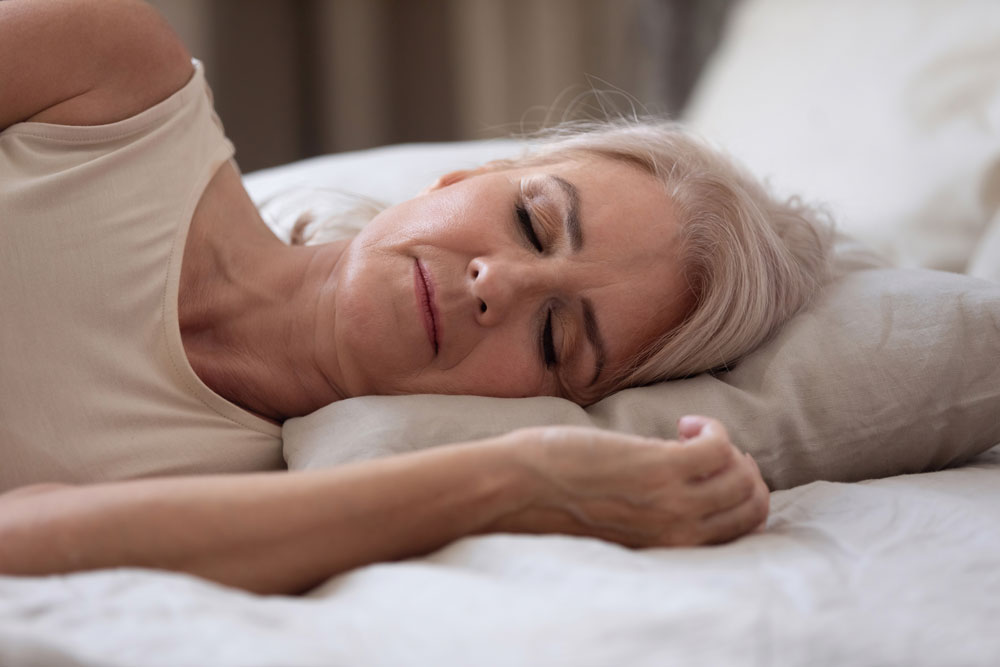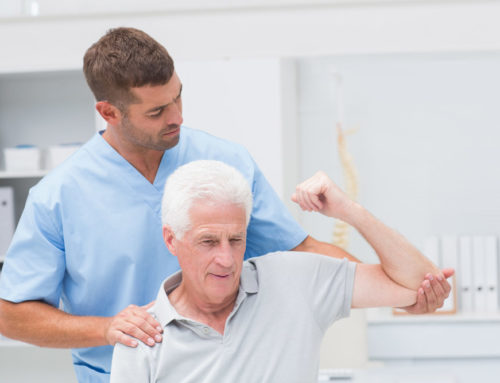Sleep apnea is a disorder that causes breathing to pause and resume several times during the night. It can occur at any age, although it’s most common in older adults. Though several factors could lead to sleep apnea, your condition could result from a few overlooked triggers. Altering patterns and behaviors could reduce your symptoms for a better night’s rest.
Though curing sleep apnea isn’t always possible, mild symptoms can be treated with a few adjustments. There are medical treatments that may improve nighttime breathing. One of them is orofacial myofunctional therapy (OMT). Trained physical therapists teach you exercises to strengthen mouth and face muscles. Doing so teaches these muscles to move and rest properly. Your doctor will determine if this treatment is best for your condition.

Most Common Sleep Apnea Triggers
Sleep apnea occurs when relaxed throat muscles block your airways, triggering you to wake up and breathe. Failed signals from the brain to your breathing muscles may also cause the condition. Possible contributing factors include age, family history, high blood pressure, diabetes, and enlarged tonsils or adenoids. Though these are the most common causes, a few others may trigger your sleep apnea, which we’ll discuss below.
Sleeping on your back
Sleeping positions affect nighttime breathing more than you may realize. Though sleeping on your side or stomach improves breathing, laying on your back often triggers sleep apnea. This position causes the tongue to slip back, blocking the throat and restricting airflow. Using pillows to elevate the head, neck, and shoulders may reduce the issue, but shifting to side sleeping offers the best results.
Sedative
Sedatives slow central nervous system functions to relax the body, reduce muscle function, and improve sleep. They also cause shallow breathing, which may be dangerous for those with sleep apnea. According to experts, sedatives reduce signals from the brain to the upper airway muscles, resulting in breathing obstruction 4. The sedative may also prevent you from waking quickly, risking increased oxygen deprivation.
Alcohol and smoking
Alcohol use also triggers sleep apnea by slowing central nervous system functions and disrupting signals from the brain. The results include relaxed mouth and throat muscles, nasal blockage, and difficulty waking.
Studies also show smokers have higher odds of moderate to severe sleep apnea than non-smokers. Experts believe these results are due to relaxed or inflamed upper airway muscles, and changes in sleep patterns. Frequent nighttime nicotine cravings may also trigger the condition.
Obesity
Recent studies show a direct link between obesity and sleep apnea. Increased fatty tissue clogs the upper respiratory tract, narrowing the passage. Muscle activity in the area decreases, restricting airflow and triggering sleep apnea. Difficulty breathing also reduces oxygenation, which increases the risk of atherosclerosis, a precursor to cardiovascular disease. Leptin hormone levels rise, increasing the severity of sleep apnea symptoms.
Nasal congestion
Colds or allergies cause sinus congestion, often blocking nasal passages. Though such clogs affect daytime breathing, the issue is frequently worse at night. Studies show those with rhinitis and other nasal congestion are 1.8 times more likely to suffer sleep-disordered breathing. As well as increased snoring, blocked airways trigger sleep apnea, waking those affected repeatedly throughout the night.
Resources:
- Mayo Clinic, Sleep apnea
https://www.mayoclinic.org/diseases-conditions/sleep-apnea/symptoms-causes/syc-20377631 - Sleep Foundation, Jan. 5, 2024, Best Sleeping Position for Sleep Apnea
https://www.sleepfoundation.org/sleeping-positions/best-sleeping-position-for-sleep-apnea - Cleveland Clinic, Sedative
https://my.clevelandclinic.org/health/treatments/24880-sedative - APSF, Winter 2002 Beware of All Sedatives in Patients With Sleep Apnea
https://www.apsf.org/article/beware-of-all-sedatives-in-patients-with-sleep-apnea/#:~:text=Furthermore%2C%20benzodiazepines%20and%20barbiturates%20preferentially,directly%20promoting%20upper%20airway%20obstruction.&text=Although%2C%20it%20is%20ideal%20to,analgesics%20in%20the%20postoperative%20period - Sleep Apnea, Sept. 19, 2023, Alcohol and Sleep Apnea
https://www.sleepapnea.org/sleep-health/alcohol-and-sleep-apnea/?srsltid=AfmBOoo0vlFLLyT5XNhOGcXGNAzQbLdMM1RUC-_ePS5JEtxolhcRiYFy - PubMed Central, Dec. 2014, Where There Is Smoke…There Is Sleep Apnea
https://pmc.ncbi.nlm.nih.gov/articles/PMC4251622/ - PubMed Central, Dec. 2017, Obstructive Sleep Apnea and Obesity: Implications for Public Health
https://pmc.ncbi.nlm.nih.gov/articles/PMC5836788/ - JACI, Feb. 1997, Nasal obstruction as a risk factor for sleep-disordered breathing
https://www.jacionline.org/article/S0091-6749(97)70124-6/fulltext
This content comprises informative and educational resources only and can not be considered as a substitute for professional health or medical guidance. Reliance on any information provided in this article is solely at your own risk. If you have any inquiries or apprehensions about your medical condition or health goals, talk with a licensed physician or healthcare provider.






Leave A Comment